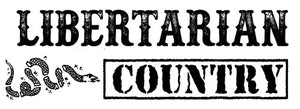Yes, libertarians support lowering the legal drinking age to at least 18. Some libertarians believe there should be no minimum drinking age in the United States of America, such as in other countries.
Lowering the Legal Drinking Age to 18
Libertarians believe that adults have the natural right to bodily autonomy and possess the authority to govern what they consume.
The government has no just authority to criminalize or punish adults of any age for consuming intoxicating substances such as beer or spiritous beverages. Regardless of fear about the potential outcome of teenage drunkenness, the government should not have the power to restrict alcohol sales or consumption for crime-preventative reasons.
Age-specific prohibition violates an adult's fundamental right to choose what they can and cannot do to their own body. Enforcing laws that prohibit the sale and consumption of alcohol for adults under 21 is arbitrary and not bound to any justifiable logic. (A 39-year-old can just as easily cause harm driving under the influence of alcohol, for example.)
Even if data supports an age demographical propensity to cause harm or commit crimes under the influence, adults under 21 should not be prohibited from purchasing or consuming alcohol based solely on statistics. This sort of crime prevention tactic is unjust and tyrannical. An adult individual of 19 years of age who peacefully consumes alcohol is effectively paying for crimes they did not commit.
Lowering the legal drinking age to at least 18 would reverse transgressive and unjust law and policy that undermines an adult's natural autonomy and agency.
Libertarians wholeheartedly support lowering the legal drinking age to at least 18.
Repealing Minimum Drinking Age Laws
Some libertarians believe in abolishing minimum drinking age laws altogether, removing the government's paternalism and power to legislate morality or interfere with the free market.
The authority and responsibility governing youths under 18 would rest solely with the parents. Suppose the parents choose to allow their children to consume alcoholic beverages. In that case, the government should not have the authority to restrict or prohibit the activity.
Many state laws dictate permission to parents to allow the supervised consumption of alcohol in private residences or during religious observations. Federal law focuses on sale and possession. The National Minimum Drinking Age Act of 1984 requires that States prohibit persons under 21 years of age from purchasing or publicly possessing alcoholic beverages as a condition of receiving State highway funds.
Repealing the Minimum Drinking Age Act of 1984
The libertarian case for repealing the MLDA revolves around liberties pertaining to private businesses functioning in accordance with the principled free exchange of goods and services.
Business owners, such as liquor stores, should have the right to sell alcohol to anyone they wish, even minors. The business owner would use discretion to determine to whom they will sell alcohol.
The government should have no authority to strip away a business's right to exchange goods freely. Some liquor stores may choose not to serve individuals under the age of 18 (or under 50 if they wanted), invoking their right to supply or deny service for whatever reason they choose.
It may be challenging to digest, but libertarians believe the government should not interfere with the free market. While most libertarians morally oppose children drinking alcohol in excess, there are practical reasons to allow the sale and possession of alcohol to minors that do not involve child intoxication.
Example: Before laws governing the sale of alcohol to minors, it was common for older children to run to the corner store to pick up provisions for their parents as a chore and a family responsibility. Included in the shopping list may have been bread, eggs, milk, cheese, cigarettes and a bottle of wine or a 6-pack of beer.
The shop owner knew the family and understood that the child was running an errand for their folks. Using proper discretion, they authorized the sale of the alcohol to the minor. The child was not smoking cigarettes or drinking wine; they were picking up groceries and items for their parents.
Children were taught not to smoke or drink, which was largely effective--and still is.
In this example, we see that the law governing the sale and possession of alcohol is needless. The parents, child and store owner were in a rational agreement that resulted in a harmless act, proving that communication and self-governance generally dissolve the need for state intervention.
The fear of rampant alcoholism afflicting children in America if sale and possession laws were repealed is characterized by paranoia, fantasy, and voodoo pharmacology.
With or without laws, it's doubtful we will see 10-year-olds getting drunk en masse. The laws are an unnecessary transgression upon the foundation of liberty.
There will always be issues and problems to deal with. In a libertarian society, free market solutions would be implemented, limiting the government's role to fundamental functions.
For more information on the philosophy, please see 'What is Libertarianism?'


